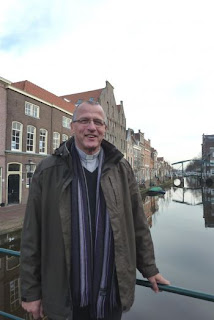
Since 1994 Mission St. Paul supports the social and diaconal work of the Daughters of St. Mary, a sister community of the Coptic Orthodox Church in Egypt. The nurses provide education and maintain a retirement home, nursery schools and kindergartens. Furthermore, the sisters run a supervised institution for the mentally disabled: "Home of Progress." The sisters also take education and information to women about the dangers of female circumcision. It is important that their work serves Christians and Muslims.The nuns gear their social servers toward the disadvantaged groups within Egyptian society. For example, their medical facilities are often less expensive than government sponsored facilities, and the nuns provide better care for their patients. Furthermore, their services often reach groups marginalized by social taboos, such as mentally handicapped children who cannot find adequate care in Beni Suef.
The goal of The Daughters of St. Mary is to practice monasticism while serving the Coptic community by combating poverty, sickness, and furthering social justice. Their community service allows the nuns to interact with the secular world, unlike other Coptic nuns, who spend most of their time cloistered in convents, praying for the world. Their dress is less constricting then other Coptic nuns, which allows them maneuverability to carry out their social projects. Their clothes are also gray rather than black, to symbolize their participation in the secular world. Although called nuns - the Daughters of St. Mary are officially Deaconesses, and are usually called 'Tasooni' - which means sister in Coptic.
In 2008, the Vastenoffer of the Old Catholic Church of the Netherlands went to the 'Home of Progress' and to provide food parcels among the poorest of the village of Beni Khalil.
Following the recent uprising in Egypt, the schools run by nuns and women's centers were temporarily closed. As a result, there was no money for teachers and drivers in February and March.
To give an idea of the amounts at stake: an average monthly salary is $37. For $1,472 twenty two teachers, drivers and janitors receive a full salary for February and March. Furthermore, funds are needed to support the women's centers and nurseries: for materials, coloring books, swings and a day out for children.
The sisters and the children they care for request our generosity to help serve the needs of the vulnerable members of society.
The Mission St. Paul's aims to raise at least $4,000. For this amount we meet the current needs of the Coptic sisters.
The Collegiate Board is counting on you in this mission collection, which is held in May.





















